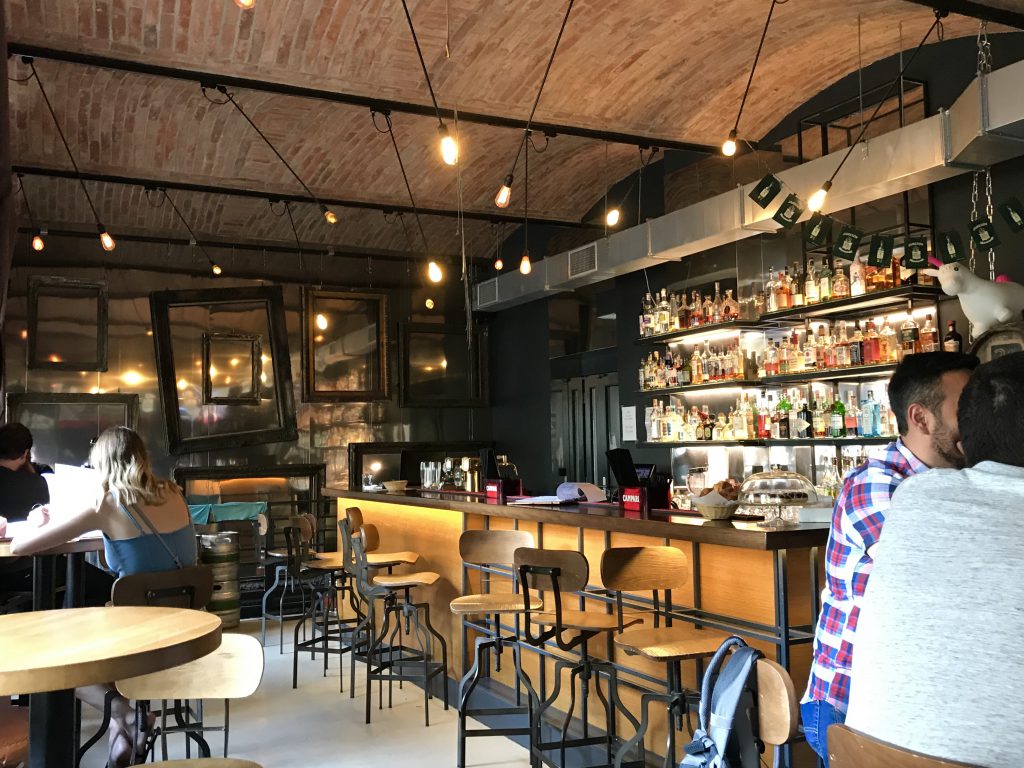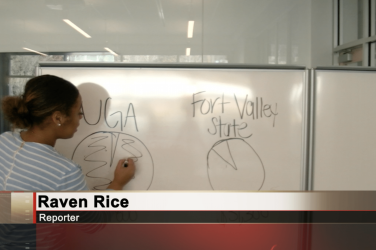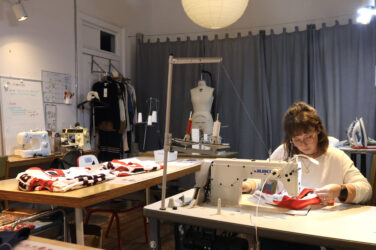Dim lighting from tea candles and the mumbling of Czech conversation kept me company at my dinner table, with scents of cooked vegetables and stewed meats at the table next to me. I checked my watch. I’d been at Kofein, a restaurant in Prague, for nearly an hour and half and still hadn’t seen my order.
The waitress didn’t share her name, and she wasn’t wearing a name tag either. It was impossible to get her attention. She was zipping through our dining area with hot dishes for other tables that had ordered after us. I’m not the type to get angry over poor service. I’ve worked in the food industry for years, and I know it’s anything but glamorous. Trying to be sympathetic to kitchen mishaps, I sat back and rationed sips of my tap water.
Not all customer service in Prague is like this. Generally, the waitstaff at restaurants will offer a short, quick greeting and seat you. They’ll be concise when taking your order and answering any questions about the menu. Once your food is brought out, they will not stop by the table again until you’re finished. Then you’ll almost always have to ask for the check. Honestly, it’s a bit more relaxing.
Why It’s Newsworthy: When traveling, it’s important for people to have a general understanding of customs and practices in the location they will be visiting.
The State’s Long Influence

Charles Greenlee is the owner of California Republic, a restaurant and bar in Prague. He spent most of his life in California and wanted to bring the West Coast experience to the Czech Republic. Along with it came great customer service. Greenlee hires people that mix well with his staff and that have a good attitude about working in the food service industry. “[Great service] is really unexpected here because people aren’t used to it,” Greenlee said. “It’s not part of their culture.”
This is true. According to Radio Praha, “[T]here may be a connection between today’s negative dining experiences and the 40 years of communism.” In that time, restaurants and other shops were owned by the state, so there was no competition among them. Managers didn’t have to fear that customers would go elsewhere, so the “customer is always right” ideal wasn’t necessary.
Transcending Borders
Just as my water glass became half-empty, the Kofein waitress brought my order to me. She apologized for taking so long, and she left it at that. There was no over-the-top story about the kitchen losing the order. The taste was more than enough to make up for the wait.
When she returned to get my empty plate, the waitress asked if I wanted coffee or desserts. “On the house, of course,” she added. Having been there for over two hours, I was ready to head back to my hotel, so I declined.
It’s almost too easy to be offended by customer service that is poor in comparison to what I would expect at home. It’s equally easy to make assumptions about a culture based on quick opinions of their quality of customer service. If someone from Prague were to travel to Athens, Georgia, they would likely feel bombarded with attention at any restaurant, and they might be annoyed.
Sure, mistakes happen, and bad service transcends borders, but so does great customer service. Traveling is all about getting away from what you’re used to, right?
Laura Burr is a junior majoring in public relations in the Grady College of Journalism and Mass Communication at the University of Georgia.








Show Comments (1)
Jona
The experience you described at Kofein highlights an interesting cultural contrast in dining expectations. While the prolonged wait and lack of engagement from the waitress may feel frustrating, especially when paired with her apparent prioritization of other tables, it also reflects a dining culture that values minimal interruptions. Unlike more attentive service styles where waitstaff frequently check in, the Czech approach you mentioned seems to emphasize leaving diners to enjoy their meals in peace, albeit sometimes at the expense of timely service. This laid-back dynamic can indeed be relaxing when executed smoothly, but as your experience shows, it risks alienating customers if communication or efficiency falters. Your patience and empathy, shaped by your food industry background, are commendable, especially in a situation that might leave others indignant.